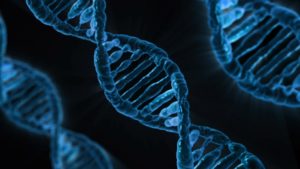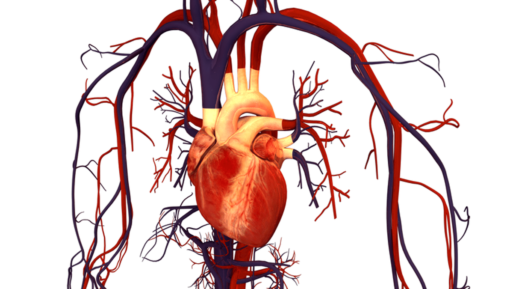Today, SevenPonds is speaking to Deanna Santana, the director of public relations for Sierra Donor Services. SDS is a nonprofit organization located in Sacramento, California that coordinates organ and tissue donations in parts of northern California and Nevada. Her inspiring story and dedication to save lives directly corresponds to Sierra Donor Service’s mission to connect lives through donation and transplantation, and to make sure every person in need receives the “Gift of Life.”

Deanna Santana
Kristen: Can you tell me a little more about Sierra Donor Services and what your role is there?
Deanna Santana: Sierra Donor Services is a nonprofit, federally designated transplant donor network that serves Northern California and Nevada. It is our legal and moral responsibility as an organization to make sure that we honor the wishes of someone who has said yes to organ donation. Our collective goal is to facilitate transplants for donation after someone has died and to honor donor families and recipients by providing the best service possible.
My personal job as public education manager of SDS is to educate the community about organ donation and dispel the many misconceptions surrounding organ and tissue donation.
Kristen: What are some of the common misconceptions?
Deanna: Oh, there are so many. Most people are familiar with the donation process that is portrayed on television and in movies, but those happen so quickly. There are a lot of things that are overlooked.
First, it is not true that if you are a registered organ donor, doctors will not try to save your life. No one’s life is more valuable than another’s.
Secondly, people are not “cut up” into tiny little pieces… skin and bone can be reconstructed so that one person can help numerous others.
Also, people believe that once they reach a certain age, they can no longer be organ donors. This is absolutely not the case. People in their 70’s or even older can donate organs and tissue. The oldest cornea donor last year was 107 years old. We always say, “Don’t rule yourself out!”
Kristen: I know that people can donate organs/tissues when they die in the hospital or are pronounced brain-dead and taken off life-support. Are there other circumstances in which people can donate?
Deanna: Tissue donation may be possible with other deaths as long as recovery is possible within 24 hours of the verified time of death. Whole body donation for research is handled directly through a university donation program. A person must usually contact a whole body donation program directly, prior to death. But Sierra Donor Services does not deal with whole body donation. In the event someone was a registered organ, eye and tissue donor as well as registered with a whole body donation program, donation for transplant would occur first. However, each whole body donation program has different guidelines to what they can accept following donation for transplant.
Kristen: How did you originally get involved with SDS? Was this a field you were interested in initially?
Deanna: Not at all. I started out like most people. I was asked if I wanted to be an organ donor when I was 17 and first got my license at the DMV. Thinking it would be a nice thing to do, I said yes. I went on to work in early childhood education and special education compliance.
In 2011, my 17-year-old son Scott was in a car accident. He passed away, but we found out that he had registered to be an organ donor at the DMV, and I never even knew! Scott gave two people the gift of sight and one woman both lungs. His liver went to a fourth gentleman, and he donated his heart, kidney and pancreas to another. And that’s not all! He also helped save 70 people through tissue donation.
After Scott’s death, I joined the staff with Sierra Donor Services in 2012. I have been here ever since.
Kristen: That is such an inspiring way to honor your son’s life and the important choice he made that day at the DMV.
Deanna: Thank you. I miss him so much. But when I think of all the people he helped, I am reminded of how important our mission is.
Kristen: Can you explain what the donation process entails, for those who are interested in becoming organ donors?

Credit: www.pixabay.com
Deanna: Basically, when a person dies, the hospital is mandated to make a call to Organ.org. The caller will get information about the potential donor’s medical history to determine if they are already an organ donor and what gifts they would be able to donate. Organs must be transplanted within 24 hours. But tissue takes months to process because it needs to be demineralized. This means that DNA needs to be removed so the tissue is not rejected by the recipient’s body. Most recipients of organs need to take immunosuppressants for the rest of their lives so that the body does not reject the transplant.
If someone who dies is not an organ donor, that person’s family will be approached and asked to make a decision on their behalf. That’s why it’s so important to join the registry if you want to be an organ donor so your loved ones don’t have to guess for you. Add your name to the registry, and tell your family your wishes. At the time of your death, your medical records will be evaluated. Then any viable tissues or organs will be recovered to transform lives.
Please come back next week to read Part Two of our interview with Deanna.

 How Can Someone Become an Organ Donor?
How Can Someone Become an Organ Donor?



 Passing of Beloved Comedian Births a New Comedy Festival
Passing of Beloved Comedian Births a New Comedy Festival

 The Spiritual Symbolism of Cardinals
The Spiritual Symbolism of Cardinals














